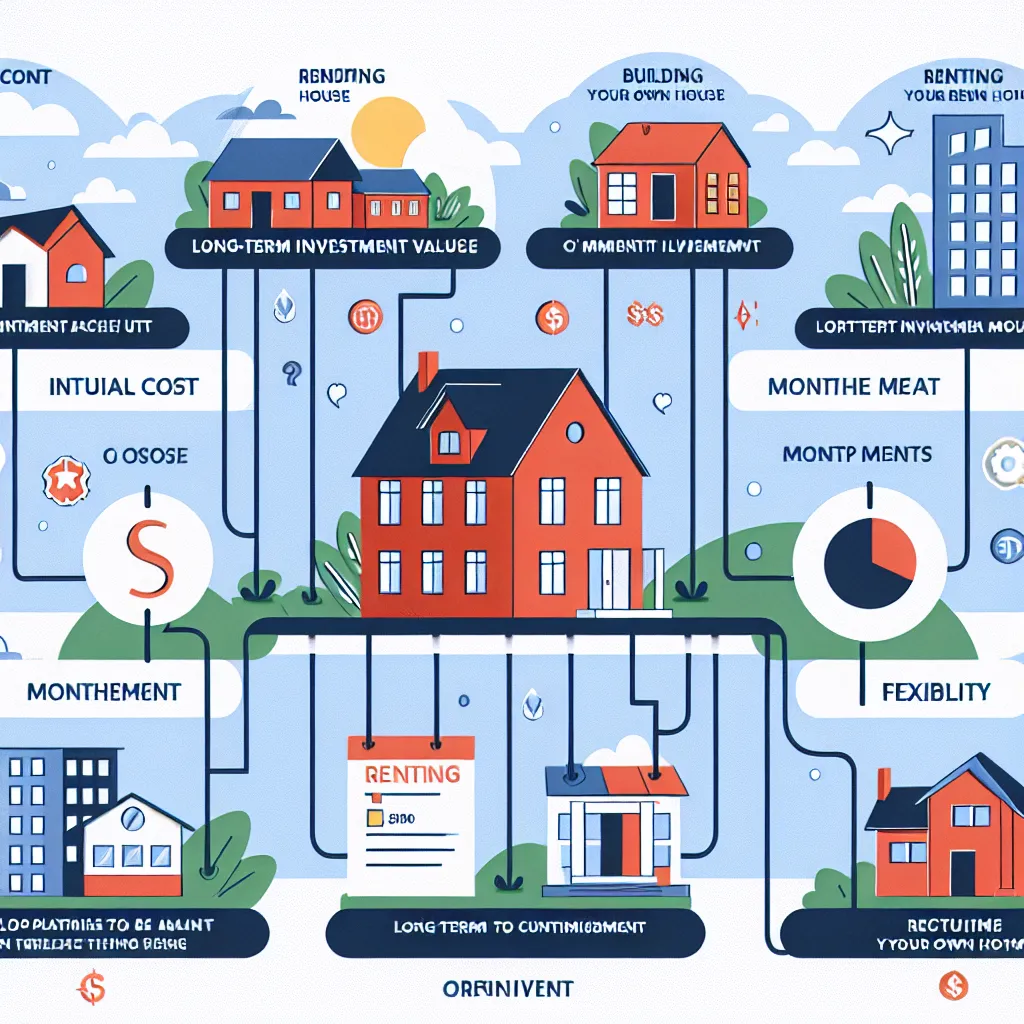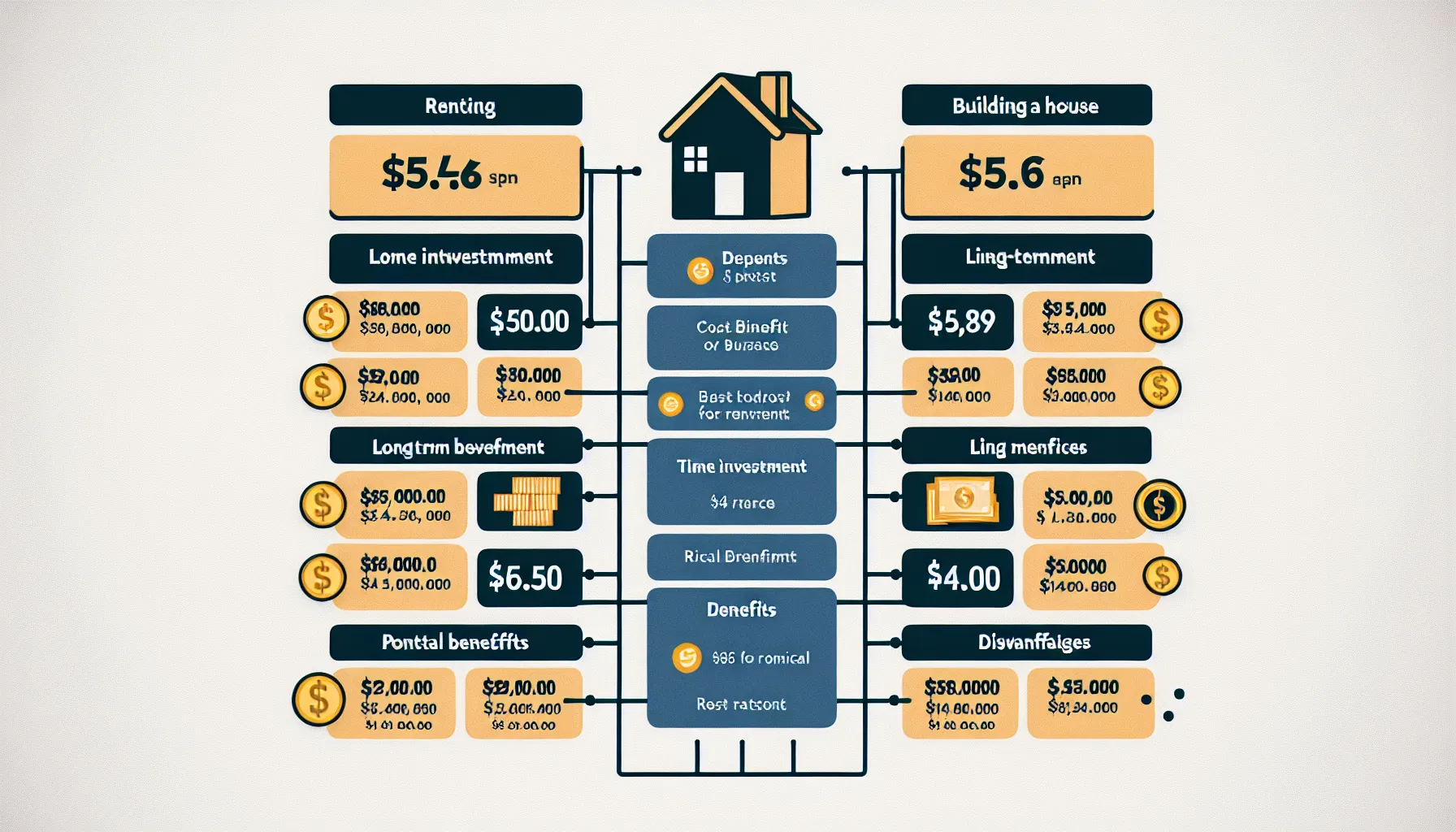Renting vs Building a Cheap House in Uganda: A Practical Guide

When considering housing options in Uganda, many people find themselves at a crossroads between renting and building their own homes. The decision isn’t always straightforward, especially when affordability and variety come into play. In this article, we will explore the pros and cons of both renting and building a house in Uganda, shedding light on costs, convenience, and the overall living experience.
Why Renting Might Be Your Best Bet
Flexibility and Convenience
Renting offers unparalleled flexibility. Whether you’re a student, a young professional, or a family, renting allows you to move easily depending on your circumstances. Are you moving to Kampala for a job? Renting a house or apartment means you can find a place close to your workplace without committing to a permanent location.
Lower Initial Costs
One of the biggest advantages of renting is the lower initial cost. You don’t need to worry about the large upfront expenses associated with building a house. Typically, you only need the first month’s rent and a security deposit. This makes renting a more accessible option for many people.
Variety of Options
From single rooms to spacious two-bedroom apartments, the rental market in Uganda offers a wide range of options to suit different budgets and preferences. You can choose a place that fits your lifestyle and needs without the long-term commitment of homeownership.
The Case for Building Your Own House
Long-term Investment
Building a house in Uganda is a significant investment that can pay off in the long run. Unlike renting, where your monthly payments do not build equity, owning a home allows you to invest in a property that can appreciate over time. This can provide financial security and stability.
Customisation
When you build your own house, you have the freedom to design it according to your tastes and needs. Whether you prefer an open-plan layout or specific architectural styles, building allows you to create your dream home.
Cost Management
While the initial costs of building may be higher, you have control over the budget and expenses. You can choose materials and finishes that fit your budget, potentially saving money in the long run compared to buying a pre-built home.
Cost Breakdown: Renting vs Building in Uganda
Renting Costs
| Type of Rental | Monthly Rent (UGX) | Annual Rent (UGX) |
|---|---|---|
| Single Room | 200,000 – 400,000 | 2,400,000 – 4,800,000 |
| Double Room | 400,000 – 700,000 | 4,800,000 – 8,400,000 |
| 2-Bedroom Apartment | 700,000 – 1,200,000 | 8,400,000 – 14,400,000 |
Building Costs
| Item | Estimated Cost (UGX) |
|---|---|
| Land Purchase | 10,000,000 – 50,000,000 |
| Construction (per sqm) | 1,000,000 – 2,500,000 |
| Permits and Legal Fees | 1,000,000 – 5,000,000 |
| Utilities Installation | 2,000,000 – 10,000,000 |
| Total (for a small house) | 50,000,000 – 150,000,000 |
Making the Decision: Renting or Building?
Lifestyle Considerations
Your lifestyle plays a crucial role in this decision. If you value mobility and have a job that requires frequent relocation, renting might be the better option. On the other hand, if you plan to settle down in one place, building a house could be more beneficial.
Financial Health
Assess your financial health before making a decision. Renting requires less upfront capital but involves continuous payments. Building a house requires significant initial investment but can save money in the long run.
Market Trends
Understanding market trends can also influence your decision. The Ugandan real estate market has been growing, and property values are likely to increase. This makes building a house a potentially lucrative investment.
How AnySqft Can Help
Navigating the complexities of renting or building a house can be daunting. AnySqft’s AI-driven platform simplifies this process by providing personalised recommendations, property valuations, and connecting you with top real estate agents and contractors.
Summary
Renting and building both have their advantages and drawbacks. Renting offers flexibility and lower initial costs, making it ideal for those who need mobility and affordability. Building a house, on the other hand, is a long-term investment that offers customisation and potential financial gains. By considering your lifestyle, financial situation, and market trends, you can make an informed decision that best suits your needs.
